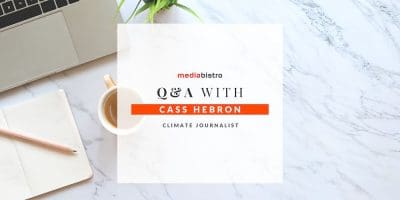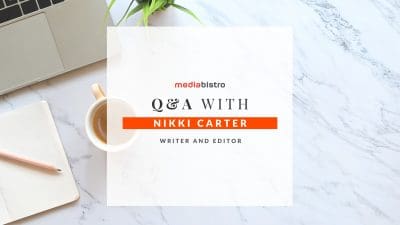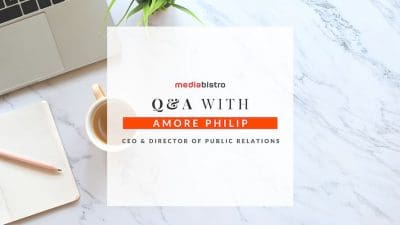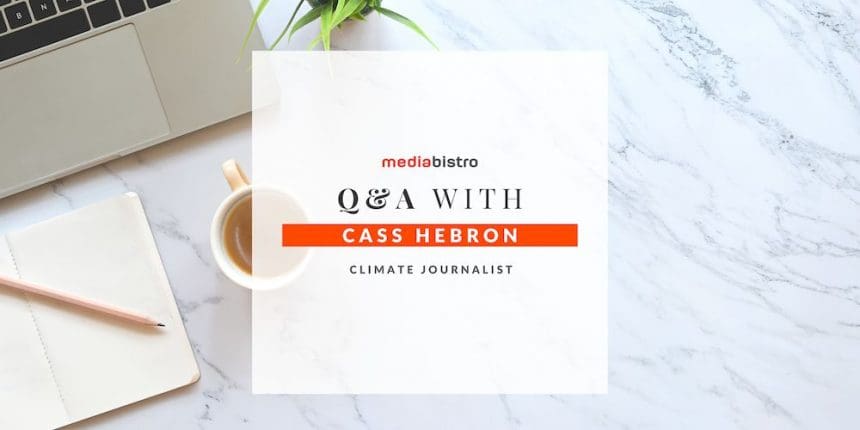
Cass Hebron, a freelance climate journalist, shares her career journey and advice.
1. Tell us a bit about the world of freelance journalism within the climate space. How did you end up writing about climate issues?
My journey into freelance communications began at university! I was studying Linguistics at the University of York, UK, and had vague plans of going into “something journalism-related” but like a lot of impending graduates, had no idea what I really wanted to do. At the same time, I was getting very interested in living a more sustainable life (an interest sparked by secondhand shopping!). I started an online student magazine called Wild about sustainability on a budget and it became my passion project. I spent as much time running it as on my degree!
Also on Mediabistro


As graduation loomed, I finally connected the dots and realized I could use my writing and media skills to keep talking about climate issues. I applied to jobs at NGOs and eventually landed a position as a trainee at the Fair Trade Advocacy Office… in Brussels, Belgium. I had no real plans to leave the UK but the next thing I knew, I was two years deep into media work at EU NGOs. In 2021 I went freelance and have been doing that ever since!
2. What does your typical day-to-day look like?
Like many freelancers, there is no “typical” day as the projects I’m doing change frequently. I’ll give a snapshot of what my August has been like. I have about three projects on the go: a client I work with two days a week for ongoing communications support, a short-term project writing copy for a justice campaign website, and I’m writing up reports on a series of webinars about the energy crisis for another NGO. So I might start the day by addressing urgent emails (work inquiries, clients requesting updates, etc.) and then over the course of the day, I will switch between these three projects.
I also work remotely so usually by midday I’ll be out at a cafe or the local library to get a couple of focused hours of work done, then I’ll go back home to finish off the rest of the work and respond to a fresh batch of emails.
3. As a freelancer, how do you balance work and life?
I’m still figuring that out! I have the deadly combination of freelancing for my passion – climate justice – which makes it really hard to switch off, even if I’m not physically at my laptop. What I’ve started doing lately is giving myself a cut-off hour for sending emails and planning things that get me out of the house and have nothing to do with my work: swimming, walks, or calls with friends are all great for this. I’m also trying to get better at planning holidays in advance and recognizing that freelancing often means working longer than a typical employee (because you also have to do all the work of networking, budgeting, and self-promotion) and that should be compensated with proper breaks!
4. What inspired you to start The Green Fix?
In 2020 during lockdown, I was working on the media team of an advocacy NGO focusing on the EU Green Deal and Covid recovery plans. At the same time, the news was all about rainforest fires in the Amazon. My friends and family were talking about how helpless they felt against these global issues. I realized there was a huge gap between what was happening at a political level, and what people outside of the ‘Brussels bubble’ were aware of. Political advocacy has a big transparency problem in communicating what is happening and how citizens can have a say in laws that affect them. So, in a bout of frustration, I started The Green Fix to bridge the gap and explain exactly how individuals can advocate for a sustainable world. Our influence does not begin and end at reusable cups!
5. How do you see the world of climate journalism evolving?
I see climate journalism changing fast already. Firstly, I see climate issues being gradually treated as less of a ‘niche’ beat and the recognition that the climate crisis actually impacts every other area of life and must be integrated into all news coverage. Second, the widespread use of social media – particularly Twitter – being used both for direct journalism from the ground and empowering citizens to write the story of what is happening in their local environments – but also the issue of social media sources being included in mainstream media without question.
One thing I don’t see yet that I hope will change is the growth of solutions-focused journalism across media outlets. Mainstream media are still reporting on climate disasters as if each is an individual catastrophe and opting for apocalyptic headlines that just fuel eco-anxiety and mental health problems. But there are so many incredible innovations and real solutions – not corporate pledges – that deserve media attention and that can push progress forward.
6. Anything else you’d like to add:
I would encourage all freelancers, even – or especially – those who don’t think they’re into climate stuff to still use their power to decide to use their skills for purpose-driven organizations either in their full-time job or spare time. It can feel like you don’t have the luxury of choosing your clients but my experience has been that being loud and clear about my ethical principles when choosing clients, is most effective in connecting me with organizations that I want to work for and that will treat me well, and that help the planet. So stand your ground!
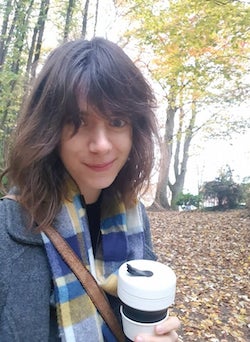
Interested in a creative gig? We have some open jobs for you!
